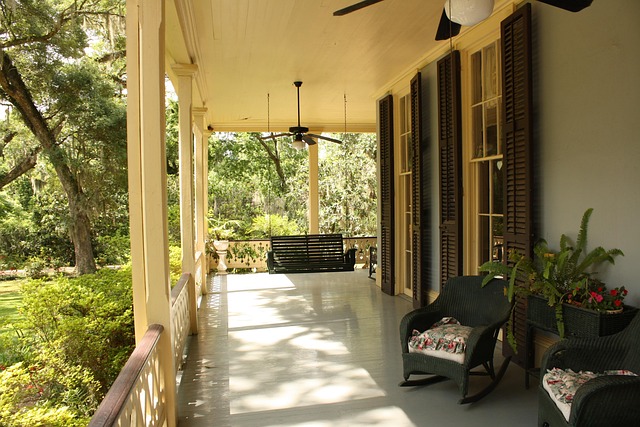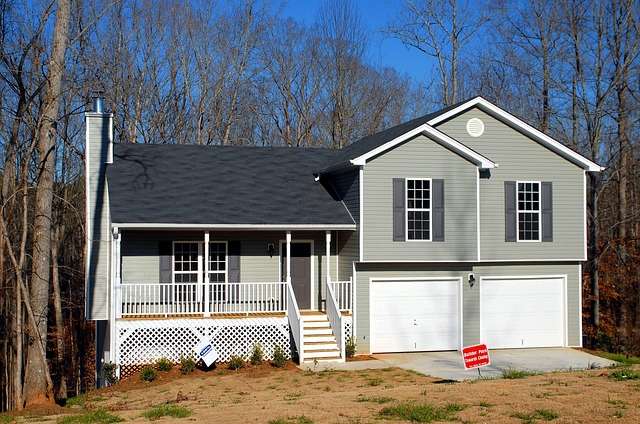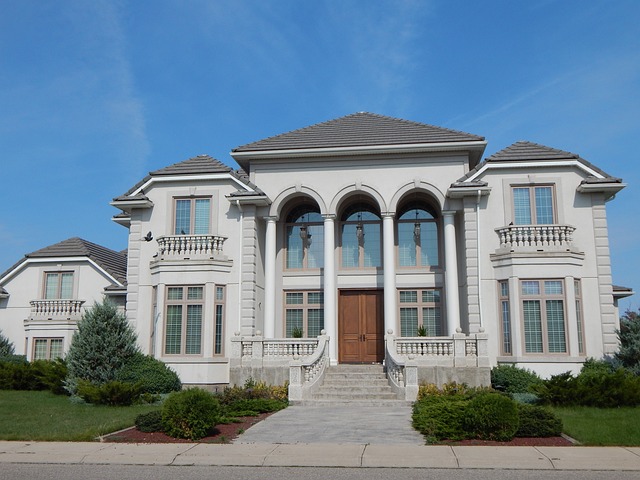Executive Condominium Resale Prices: A Comprehensive Analysis
Introduction
In the dynamic realm of real estate, the value of executive condominium (EC) resale prices holds significant weight for property owners, investors, and the broader economy. This article delves into the multifaceted aspects of EC resale pricing, offering readers a deep understanding of its significance, current market trends, economic implications, and future outlook. By the end of this exploration, you will be equipped with an informed perspective on how EC resale prices are determined, their impact on the housing market, and what this means for stakeholders.
Understanding Executive Condominium Resale Price
An executive condominium (EC) is a form of housing in Singapore designed to provide affordable options for married couples and singles. Over time, as these units mature, they become eligible for resale. The resale price of an EC is influenced by various factors such as its location, condition, market demand, and the overall economic climate. Understanding this price is crucial for individuals looking to purchase or invest in property within this segment.
Historically, ECs were introduced to address the housing needs of middle-income families. They offer a stepping stone into condominium living before transitioning to private properties after fulfilling certain criteria, such as the five-year minimum occupation period. The resale price of these units is a reflection of their market value at a given point in time and is subject to fluctuations due to economic shifts and policy changes.
Global Impact and Trends
The global impact of EC resale prices extends beyond national borders, influencing international investment patterns and cross-border capital flows. Key trends shaping the trajectory of EC resale prices include demographic shifts, global economic conditions, and technological advancements. For instance, the increasing urbanization in developing countries has led to a surge in demand for high-density living spaces, paralleled by an interest in established EC markets like Singapore.
Different regions are affected differently by these trends. In Singapore, the EC resale market is closely monitored by both local and foreign investors due to its strategic location within Asia and its reputation as a safe haven for investments. The market’s performance often sets a benchmark for similar housing segments in other Asian cities.
Economic Considerations
The economic aspects of EC resale prices are multifaceted, with market dynamics and investment patterns playing pivotal roles. These prices are not only indicative of the demand-supply equation but also reflect investor sentiment and expectations regarding future growth. In terms of investment patterns, ECs have traditionally been a popular choice for both local citizens and permanent residents due to their affordability and the benefits they offer over the long term.
Within economic systems, EC resale prices serve as an indicator of economic health. For instance, a consistent upward trend in these prices can signal a robust economy with strong employment and income growth. Conversely, a downturn might indicate economic headwinds or a shift in consumer sentiment. The role of EC resale prices in broader economic indicators is therefore a critical area of analysis for policymakers and market observers.
Technological Advancements
Technological advancements have significantly impacted the real estate industry, with innovations such as virtual tours, blockchain-based transactions, and big data analytics reshaping how EC resale prices are determined and analyzed. These technologies not only enhance the buying experience but also provide more accurate pricing models by incorporating a wider array of data points.
Looking ahead, advancements in artificial intelligence (AI) and machine learning could further refine pricing models by predicting market trends with greater accuracy. Additionally, the integration of these technologies into property management and maintenance could affect the long-term value of ECs, making them more attractive to investors and homeowners alike.
Policy and Regulation
The policies and regulations governing EC resale prices are comprehensive, covering aspects from eligibility criteria for buyers to pricing mechanisms and cooling-off periods. The Housing & Development Board (HDB) in Singapore sets out clear guidelines that influence the EC resale market. These include restrictions on who can purchase an EC upon resale and under what conditions.
Legislative frameworks are also in place to prevent speculative behavior and ensure fair pricing practices. For example, additional buyer’s stamp duties (ABSD) are levied on both singlish buyers and developers to curb speculation and ensure stability in the EC market. The interplay between these policies and market dynamics is a complex area that requires careful analysis to understand the full implications for EC resale prices.
Challenges and Criticisms
The EC resale market is not without its challenges and criticisms. One of the main issues is price volatility, which can be exacerbated by rapid economic changes or shifts in government policy. Another challenge is ensuring equitable access to these properties, as demand often outstrips supply, leading to intense competition and potentially inflated prices.
Criticisms often center around the affordability of ECs upon resale, especially given the maturation of these units and the subsequent price hikes. There are also concerns about the long-term sustainability of the EC model in light of changing demographics and housing preferences. Addressing these challenges requires a nuanced approach that balances market dynamics with social equity objectives.
Case Studies: Market Dynamics and Outcomes
To illustrate the factors influencing EC resale prices, let’s consider two case studies from Singapore’s market. The first case study examines the impact of a new mass transit system on an EC development located near a newly announced station. Post-announcement, we observe a significant uptick in resale prices due to improved connectivity and the potential for capital appreciation.
The second case study looks at how policy changes, such as adjustments to ABSD rates or income ceiling requirements, have affected EC resale prices over time. The data shows a clear correlation between these policy changes and shifts in market sentiment and pricing trends.
Conclusion
EC resale prices are determined by a complex interplay of factors including location, condition, market demand, economic conditions, technological advancements, policy, and regulation. Understanding these dynamics is essential for investors, homeowners, and policymakers alike. As the EC market continues to evolve, it is crucial to monitor both the challenges and opportunities that arise to ensure a sustainable and equitable housing ecosystem.
Further Research
Future research should focus on long-term trends in the EC resale market, the impact of emerging technologies, and the effectiveness of current policies in addressing market challenges. Additionally, comparative studies with other countries’ EC markets could provide valuable insights into best practices and potential areas for reform. By staying informed and adapting to new developments, stakeholders can make educated decisions that contribute to the health and vibrancy of the EC resale market.
Understanding Executive Condo resale prices is vital for first-time buyers aiming to invest strategically. By analyzing location, floor plan, age, and market trends, buyers can assess investment potential through historical sales data and expert consultation……..
Woodlands, Singapore's suburban gem, experiences high demand for its Executive Condos due to excellent connectivity, top-notch infrastructure, and nearby amenities. Resale prices are influenced by location, unit features, market trends, and age. The marke…….
Determining the Executive Condo Resale Price involves a complex interplay of location, unit condition, market trends, and unique features. The mortgage journey starts with pre-approval, followed by property search, offer submission, and document preparation. F…….
Executive Condos in Hougang offer modern, affordable luxury with spacious layouts and high-end finishes. Their prime location, convenient amenities, and consistent resale price growth make them attractive for professionals and families. Prices are influenced b…….
Understanding Executive Condo Loan eligibility is crucial before entering the property market. Lenders assess financial stability, credit history, and the Executive Condo resale price for a loan-to-value ratio below 80%. Location, age, condition, floor plan, s…….
Executive Condos (ECs) in Yio Chu Kang have seen steady price increases due to high demand from young professionals and families, driven by strategic locations, transportation access, schools, and recreational facilities. Location, property age, condition, mar…….
The Executive Condo at Sengkang is a coveted residential option, blending luxury and accessibility in a growing Singapore neighborhood. Its strategic location provides easy access to amenities, schools, malls, and recreational areas. The condo's popularit…….
Determining the resale price of an Executive Condo involves assessing location, property age/condition, unit size, market demand, exclusive amenities, and developer reputation. Prime locations, modern features, larger units, high demand, and desirable amenitie…….
In Singapore, Executive Condos (ECs) and HDB flats are primary housing options, differing in price, amenities, and ownership structure. ECs, with modern amenities and prime locations, command higher resale prices due to their desirability. HDB flats, governmen…….
Executive condos offer a lucrative investment opportunity due to their luxury amenities, strong rental demand, and capital appreciation potential. The resale price is influenced by location, floor level, unit size, building condition, and market liquidity. Urb…….









